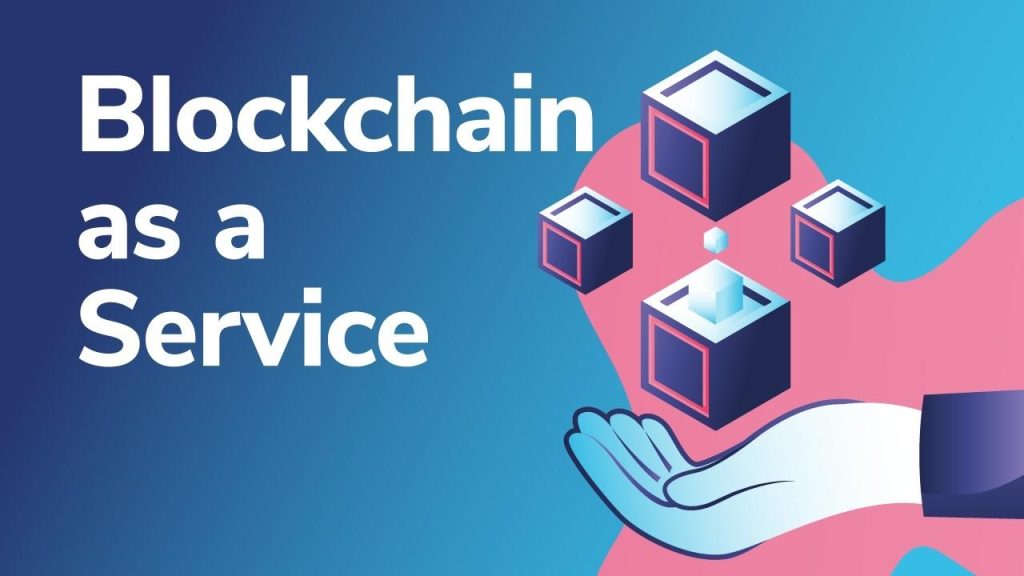
Blockchain has emerged as one of the most groundbreaking technologies of the 21st century, with potential applications across finance, healthcare, supply chains, government, and more. However, despite its transformative potential, blockchain adoption has been limited by several barriers—most notably, high infrastructure costs, technical complexity, and a shortage of skilled developers. Today, Blockchain as a Service (BaaS) is changing that narrative. By offering blockchain capabilities through cloud-based platforms, BaaS is enabling businesses of all sizes to explore and deploy blockchain solutions with far less effort and cost.
What is Blockchain as a Service (BaaS)?
Blockchain as a Service (BaaS) refers to third-party cloud-based infrastructure and services that enable businesses to develop, host, and operate their own blockchain applications, smart contracts, and networks. Much like Software as a Service (SaaS), BaaS eliminates the need to build complex infrastructure from scratch. Companies such as Microsoft Azure, Amazon Web Services (AWS), IBM Blockchain, and Oracle provide BaaS solutions that allow organizations to focus on application development while the provider manages backend operations like node setup, monitoring, upgrades, and security.
Overcoming Traditional Barriers to Blockchain Adoption –
Historically, the adoption of blockchain required significant investment in infrastructure and expertise. Organizations needed to understand intricate concepts such as distributed consensus algorithms, cryptography, decentralized network architecture, and data integrity models. Moreover, maintaining blockchain networks required constant system updates, tight security controls, and high availability infrastructure. These complexities, along with the need for compliance and performance optimization, made blockchain a less accessible option for many businesses. BaaS addresses these challenges by offering plug-and-play platforms that abstract away the technical burdens, enabling faster and easier deployment.
Lowering the Entry Barrier for Businesses –
One of the most powerful aspects of BaaS is its ability to lower the entry barrier for blockchain adoption. Startups and small-to-medium enterprises (SMEs), which often lack the resources to experiment with complex technologies, can now build and test blockchain applications affordably. By removing the need for expensive hardware, extensive coding, and full-time blockchain specialists, BaaS empowers a wider range of companies to explore decentralized applications, token systems, digital ledgers, and more.
Accelerating Time to Market –
BaaS enables faster prototyping and deployment through ready-made development tools, pre-built templates, and scalable infrastructure. This helps organizations reduce their time to market significantly. Instead of spending months setting up a blockchain environment, teams can get started in a matter of days or even hours. This rapid development model is especially valuable in competitive industries where innovation speed is a key differentiator.
Enhancing Security and Compliance –
Security and compliance are critical factors in blockchain implementations, particularly in sectors such as finance, healthcare, and legal services. BaaS providers offer enterprise-grade security features such as identity management, access control, encryption, and audit trails. These platforms also help organizations meet compliance standards such as GDPR, HIPAA, and financial regulatory requirements. By leveraging the expertise of BaaS vendors, businesses can build more secure and trustworthy blockchain solutions without having to master every detail themselves.
Seamless Integration and Interoperability –
Modern BaaS solutions are designed to integrate with existing enterprise systems and software stacks. Through APIs and built-in connectors, businesses can embed blockchain features into their current workflows without major architectural changes. Some platforms also support cross-chain interoperability, allowing applications to interact with multiple blockchain protocols—an increasingly important capability in a fragmented blockchain ecosystem.
Real-World Applications of BaaS –
The practical applications of BaaS are rapidly expanding across industries. In the supply chain sector, companies use BaaS to create transparent and tamper-proof tracking systems, improving product traceability and reducing fraud. In finance, organizations deploy BaaS to develop decentralized finance (DeFi) solutions, streamline cross-border payments, and improve transaction verification. Healthcare providers are adopting BaaS to manage patient records securely and enable data sharing across institutions. Even governments are exploring BaaS to develop digital identity systems, land registry solutions, and blockchain-based voting platforms.
Conclusion –
Blockchain as a Service is a game-changer in the technology landscape. By making blockchain more accessible, affordable, and scalable, BaaS is opening the door for a new wave of innovation. Businesses no longer need to be blockchain experts or invest heavily in infrastructure to take advantage of this powerful technology. With BaaS, the benefits of decentralization, transparency, and trust can now reach a broader range of users and industries. As the technology matures, BaaS is poised to play a critical role in driving the next phase of digital transformation.

